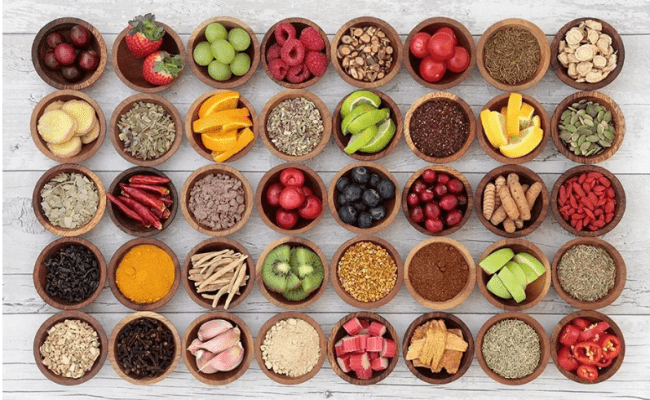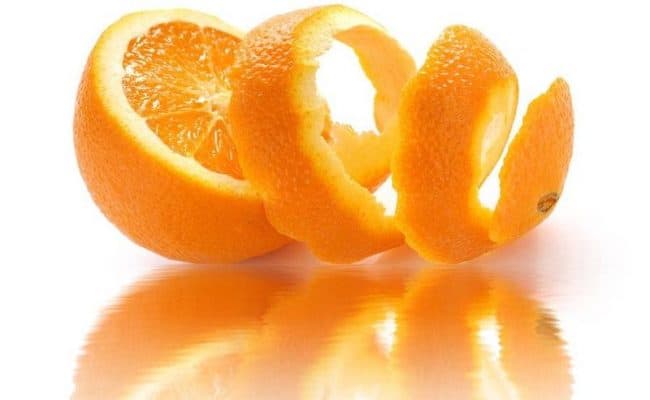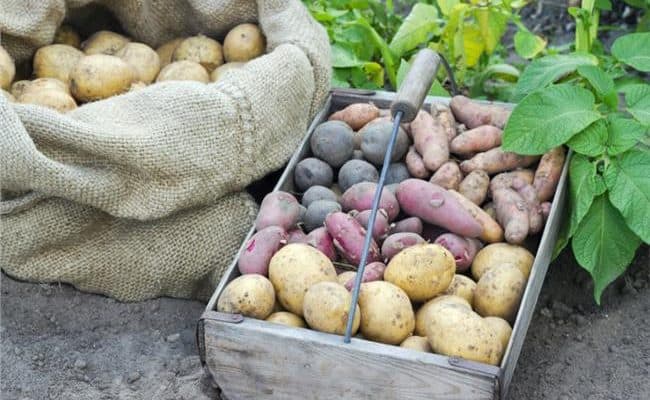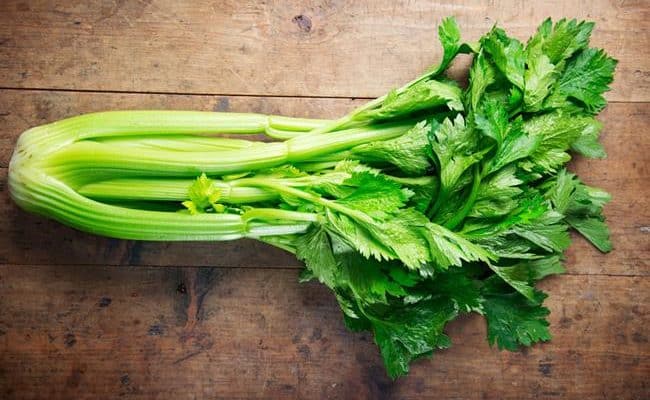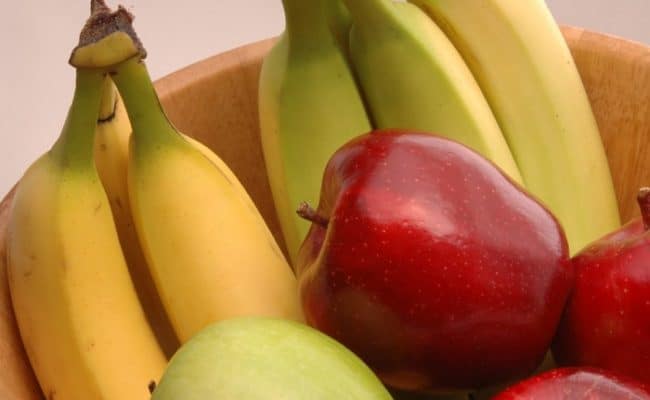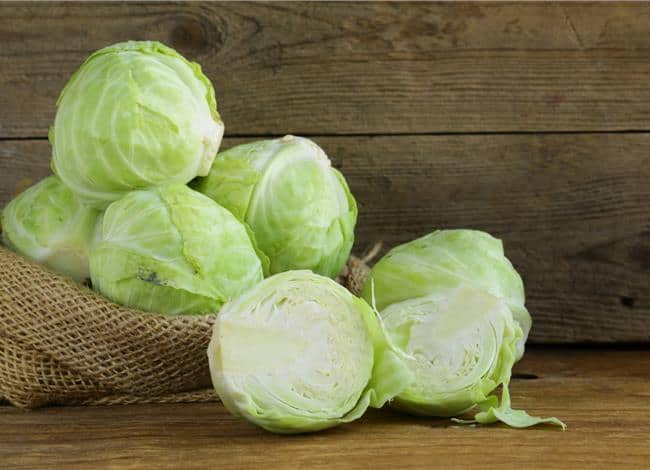
The cabbage soup diet has been a common fad diet since around the 1980’s. People claim to lose up to 10 pounds by eating mostly cabbage soup for up to a week. One reason why filling up on cabbage soup may help with weight loss is that as a half cup of cabbage is less than 20 calories.
There are several criticisms of following something like the cabbage soup diet, as eating only cabbage soup for lengthy periods of time could cause muscle and water loss instead of just fat loss.
Cabbage is full of many nutrients and is a low calorie dense food. However, as with any other food, you cannot live on cabbage alone. Food intake should be made up of many different nutrient dense foods and provide a balance of macronutrients.
While cabbage may not literally burn fat, a diet made up of nutrient dense foods could help with weight loss.
Cabbage health benefits
Cabbage is part of the cruciferous vegetable family. Eating high amounts of cruciferous vegetables is associated with lowering risk for some cancers (1).
Like other fruits and vegetables, cabbage is high in antioxidants and many vitamins and minerals.
A ½ cup serving of cooked cabbage can provide a little less than 50% Daily Value of vitamin C, 100% vitamin K and lesser amounts of potassium, manganese, B6, iron, calcium and magnesium.
An intake high in fruits and vegetables can have many health benefits, but cruciferous vegetables especially may offer health benefit. More research is needed, but current studies suggest getting at least 5 servings of cruciferous vegetables per week.
Fermented cabbage: could it help with weight loss?
Fermenting cabbage may increase some nutritional value and may even help weight loss.
Fermenting uses bacteria in the process that are considered probiotics. When we eat foods with probiotics, these bacteria then take up short term residence in the digestive tract and may offer additional health benefits.
The relationship between gut bacteria and our health is continuing to unfold from research. Some research suggests probiotics may play a role in overall body metabolism, as gut bacteria levels have been shown to be different from lean to obese people.
A 2011 study (2) even concluded gut bacteria may be a potential target for managing obesity.
A 2014 study (3) suggests Kimchi, Korean fermented vegetables, may offer additional health benefits besides weight balance including: cancer fighting properties, promoting colon health, lowering cholesterol, anti-aging and brain health promotion.
How can cabbage help with weight loss?
Why can some people lose weight by eating mostly cabbage or cabbage soup? As mentioned, cabbage is a low calorie food. By filling up on low calorie foods you reduce your overall calorie intake which can shift your body into using energy stores for energy.
Eating low energy dense foods, like cabbage, is recommended for health. Examples of low energy dense foods include: lean proteins, fruits, vegetables, whole grains and legumes.
These foods provide a lot of nutrients without providing a lot of energy. These foods are also high in fiber which can help you feel full.
This way you can eat a large volume of food without a large energy amount. This may be a more sustainable way to long term weight loss instead of following a fad diet that can only be maintained for a week or two.
Many studies have shown a benefit for weight loss that includes a diet high in fruits and vegetables. However, it is recommended to eat a variety of fruits and vegetables, not just primarily cabbage.
In fact, eating primarily cabbage soup is not recommended long term because doing so may cause deficiencies in certain nutrients (4).
Is it healthy weight loss?
Any low calorie diet plan, or fad diet, may cause weight loss. However, this weight loss can be temporary and may be mostly water weight lost. If you primarily eat cabbage, you may lose weight, but is it healthy? Also, what happens once you start eating more of a normal diet?
Eating a very low calorie diet could drop metabolism, which can sometimes hinder weight loss. Energy levels may also plummet which doesn’t encourage increased activity to help preserve muscle mass.
The bottom line is following something like a cabbage soup diet may cause a loss of muscle and water weight as part of total weight loss and may be easy to regain the weight.
Are there any dangers associated with high intakes of cabbage?
There are some instances when eating large amounts of cabbage may actually cause more harm than good. If you are on blood thinners, drastically altering your intake of vitamin K can interfere with your medication. Since cabbage is high in vitamin K, greatly increasing your intake may not be recommended.
Very high intakes of cabbage have led to hypothyroidism in some animal studies. While this risk very is rare in humans, if someone is iodine deficient, a compound in cruciferous vegetables can compete for iodine uptake into the thyroid.
Not a danger, but eating a diet high in cabbage or cabbage soup could have some unpleasant effects on the digestive tract. Bumping up fiber intake can cause an increase in flatulence and/or loose stools.
Conclusion
Cabbage does not literally burn fat, and any claims that a food does burn fat should be avoided.
Cabbage is a very low calorie food that is high in many nutrients. Also, as part of the cruciferous vegetable family, higher intakes may be associated with lowering some cancer risks.
Eating low calorie diets can help with weight loss, as following something like a cabbage soup diet. However, weight loss associated with this can be mostly water weight and some lean tissue that only means short term weight loss.
Instead of focusing on just one vegetable, eat a wide variety for the biggest health benefit. It’s a good idea to load up on foods like cabbage that are high in fiber that can keep you full.
However, your diet should be balanced with many other foods to provide a variety of nutrients.




